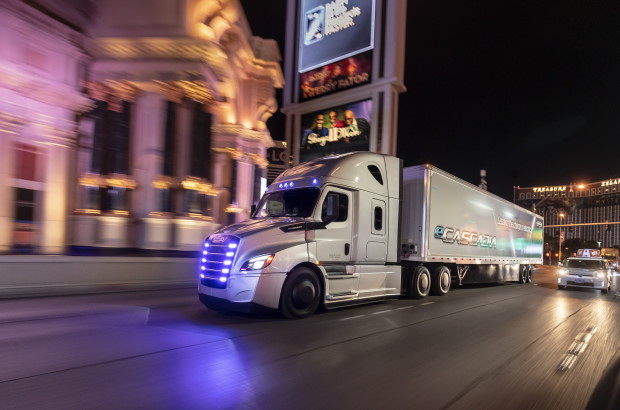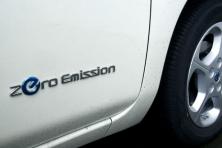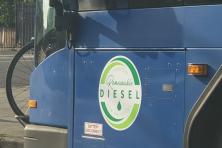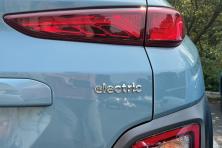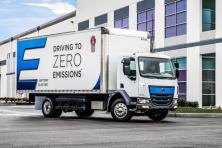We did it! Climate Solutions and the Clean Air, Healthy Communities Coalition is excited to celebrate the momentous victory that will clean up our air and reduce pollution from Oregon’s transportation sector! Earlier today, the Environmental Quality Commission voted to pass the Clean Truck Rules that will help us in our transition to zero emission trucks and reduce smog pollution from new diesel truck engines!
What will the Clean Truck Rules Do?
- The Advanced Clean Truck Rule will require manufacturers to produce and sell a minimum percent of new zero-emission medium- and heavy- duty trucks in Oregon (30-50% by 2030 and 40-75% by 2035).
- The Low-NOx Omnibus Rule is an emissions standard and will require reduced emissions from new fossil fuel MHD trucks sold. The new NOx standards would be cut to about 75% below current standards beginning in 2025 and 90% below current standards in 2027.
* The Zero Emission Vehicle (ZEV) Mandate is another rule Oregon packaged with the rulemaking for the Clean Truck Rules that requires automakers to sell an increasing number of battery electric, plug-in hybrid, and/or full-cell electric passenger cars and light trucks.
What does this mean?
Cleaner air and reduced emissions is on the horizon for Oregon and not to mention that our state alone will save $21.2 billion and avoid 84,000 respiratory illnesses by 2050 just by implementing these rules alone!
Oregon is now the 1st state in the nation to follow California’s lead on implementing the Clean Truck Rules and we’re expecting that more states will adopt these rules by the end of this year as well, possibly including Washington, Massachusetts, New York, New Jersey and Maine! Our 7 states combined make up a large share of the US truck market, driving us towards a successful clean truck transition!
What’s next?
After celebrating this big win, the Clean Air, Healthy Communities Coalition will be getting right back to work as we seek to secure a just and equitable transition for clean trucks. This means that we will be working on trying to achieve:
- Incentives that bring down the cost of new electric trucks so small businesses can take advantage of the new market
- Robust public charging networks for medium- and heavy- duty vehicles
- Benefits directed to BIPOC and low-income communities that are disproportionately burdened by air pollution
- Worker protections that ensure the transition to electric trucks provides quality jobs, project labor agreements, apprenticeships and more
- Commitments that support responsible sourcing and end of life for electric batteries
Stay tuned for the next phase of our work starting in 2022 as we work to ensure a just and equitable transition to electric trucks in Oregon! Thank you for all your support!
